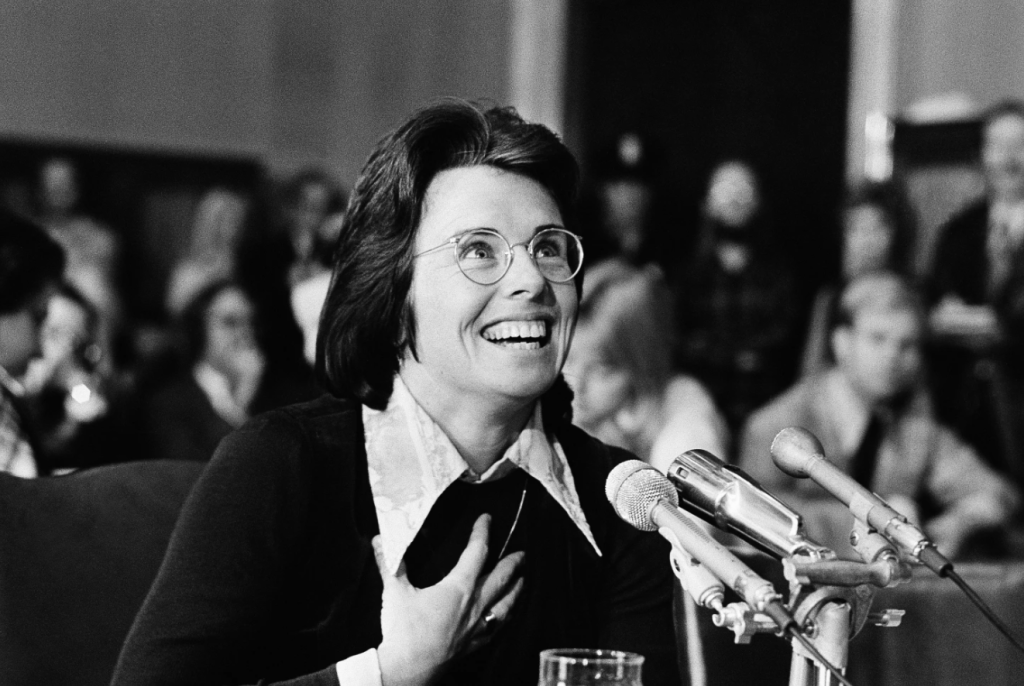After her triumph over Bobby Riggs at the Astrodome, everyone wanted a piece of Billie Jean King–even the United States Senate.
The tennis boom extended to the highest ranks of society. Former Vice President Spiro Agnew was an enthusiastic–if erratic–player. New York Representative “Battling Bella” Abzug cleaned up when she bet on Billie Jean against her fellow Riggs-backing Congressmen. Connecticut Senator Lowell Weicker told a group of high students that he would challenge King once he was finished with the Watergate hearings–if he could ever shore up his backhand.
Madame Superstar was invited to Washington to speak to a Senate subcommittee on the subject of the Women’s Educational Equity Act (WEEA), a law proposed to support the broader gender-equality goals of Title IX, which had passed the previous year. The bill had foundered in the House of Representatives, but Senator Walter Mondale revived it for consideration by the Senate.
In both a prepared address and a question-and-answer session on November 9th, King emphasized that stereotyping and discrimination started early. She chose tennis as an 11-year-old, when she was told to pick a “ladylike” sport. As she rose through the local junior ranks, she saw travel funding and other advantages given to boys without half her promise, while she got nothing. It was a vicious cycle: There were few professional role models for athletic young girls, and without early support, few of those girls would do any better.
King was one of the few to break through, and she delighted to see how things were changing. “Little boys come up to me and say, I want to be a great tennis player like you,” she told Senator Richard Schweiker. “They don’t think of me as a woman or man; all they know is I am an athlete.”
There was little talk of specifics; King’s appearance was, in part, a gambit to generate positive press for the WEEA. Besides, who would pass up the chance to meet the sports hero of the hour? “I saw the whole tennis match,” said Schweiker, “and I am one of the tennis buffs who would not think of challenging you.”
Congress–some of it, anyway–was just trying to catch up with the times. As part of a larger package, the WEEA would pass in August 1974, authorizing grants for various type of educational programs. Title IX wasn’t yet primarily linked to sports, and its regulations wouldn’t be finalized until 1975. At every educational level, women’s teams and programs were already sprouting up, many of them with new scholarships attached. Legislation only accelerated a process that–thanks in part to Billie Jean and other role models–was already reshaping American culture.
“Women are starting to have more self-respect, walking tall,” King told the subcommittee. “I think a lot of it is just because of that match against Roberta Riggs the other day.”
* * *
This post is part of my series about the 1973 season, Battles, Boycotts, and Breakouts. Keep up with the project by checking the TennisAbstract.com front page, which shows an up-to-date Table of Contents after I post each installment.
You can also subscribe to the blog to receive each new post by email:
